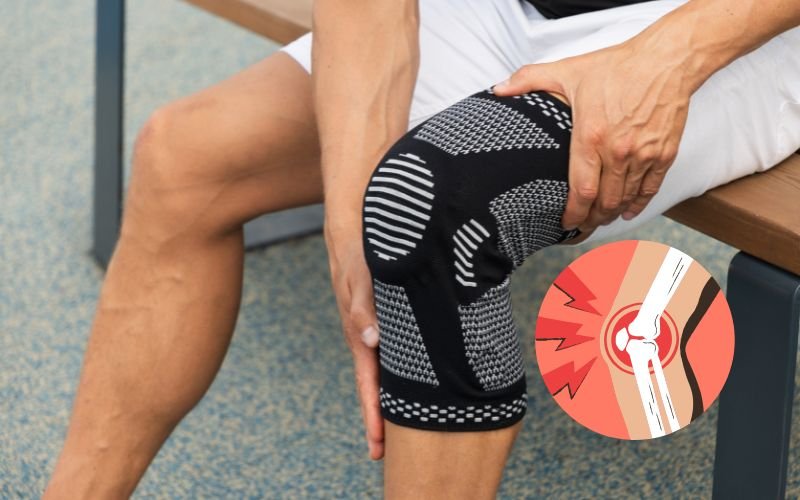Knee surgery is a life-changing procedure for many, especially for those undergoing total knee replacement or ligament repair. While the surgery itself marks a significant step toward recovery, the post-operative phase is equally important. During this time, tools like knee braces become crucial. They provide stability, minimize pain, and aid in faster healing.
For patients in Delhi, access to orthopedics treatment and the rehabilitation aids make all the difference. This article by orthopedician in Delhi talks about the benefits of using knee braces post-surgery, types of braces available, and why choosing the right care provider ensures a smooth recovery journey.
Why Are Knee Braces Important After Surgery?
After knee surgery, the joint often feels weak and unstable. Whether you’ve had ligament repair or total knee replacement, the recovery period requires extra support. Knee braces help by:
- Stabilizing the knee joint.
- Reducing strain on healing tissues.
- Alleviating pain and discomfort.
- Preventing unnecessary movements that could harm the joint.
Using a knee brace after knee replacement surgery also boosts confidence. Patients often feel hesitant about moving their knee, fearing injury. A well-fitted brace reassures them, enabling safer and more active rehabilitation.
Types of Knee Braces for Post-Surgery Recovery
Not all knee braces are the same. Depending on the type of surgery and recovery needs, different braces serve specific purposes.
1. Hinged Knee Braces
Hinged knee braces are popular for post-surgery recovery. These braces limit the knee’s range of motion, protecting the joint from sudden movements. They are ideal for patients who’ve undergone ligament repair or total knee replacement.
2. Compression Braces
Compression braces are designed to reduce swelling and improve blood flow around the knee. Swelling is a common issue after knee surgery, and these braces provide gentle pressure to ease inflammation, promoting faster healing.
3. Unloader Braces
Unloader braces are beneficial for patients recovering from surgery to address arthritis or cartilage damage. These braces redistribute weight across the knee joint, reducing pressure on specific areas and making walking more comfortable.
Key Benefits of Using a Knee Brace
Enhanced Stability
Post-surgery, the knee may feel wobbly or weak. A knee brace provides much-needed support, ensuring proper alignment and reducing the risk of harmful movements.
Pain Management
Pain is a natural part of recovery, but a knee brace for knee pain can significantly minimize discomfort. By taking the pressure off sensitive areas, braces help patients move more confidently during therapy sessions.
Reduced Swelling
Swelling often accompanies knee surgeries like knee replacement. Compression braces address this by improving circulation, which helps manage inflammation effectively.
Faster Healing
Using a knee brace ensures that the joint stays in the correct position, aiding natural healing processes. By supporting proper posture and controlled movement, braces speed up recovery.
Increased Confidence
Patients recovering from surgery often fear reinjury. A brace provides physical support and mental reassurance, helping them participate actively in rehabilitation exercises.
The Role of Knee Braces in Total Knee Replacement Recovery
Total knee replacement is a common solution for those dealing with severe arthritis or joint damage. While the surgery replaces the damaged knee with a prosthetic joint, the healing process requires careful management. Knee braces play an essential role by:
- Stabilizing the new joint.
- Allowing controlled movements during early recovery stages.
- Supporting gradual return to normal activities.
Hinged knee braces, in particular, are recommended for patients after a total knee replacement. These braces limit extreme movements, ensuring the artificial joint isn’t strained during the initial weeks.
Tips for Using Knee Braces Effectively
Getting the most out of a knee brace involves proper usage and care. Here are some tips to ensure effectiveness:
- Consult a Specialist: A knee surgeon in Delhi can guide you in choosing the best brace for your recovery needs.
- Ensure Proper Fit: Ill-fitting braces can cause discomfort or fail to provide adequate support. Always check the fit.
- Use as Advised: Wear the brace during activities that put stress on the knee, as instructed by your doctor.
- Combine with Therapy: While braces offer support, physical therapy is essential for regaining strength and mobility.
Choosing the Right Knee Brace for Your Needs
Selecting the correct knee brace depends on several factors:
- Type of Surgery: Patients recovering from ligament repair may need hinged braces, while those managing swelling might benefit more from compression braces.
- Activity Level: If you plan to resume high levels of physical activity, opt for a durable and flexible brace.
- Medical Advice: Always seek guidance from a knee replacement specialist in Dwarka to ensure you’re using the right brace.
Conclusion
Recovering from knee surgery requires the right tools, support, and guidance. A knee brace is a vital component of this process, offering stability, pain relief, and faster healing. Whether you’re using a hinged knee brace for controlled mobility or a compression brace to manage swelling, these devices empower patients to regain confidence and resume daily activities.
For those seeking knee replacement in Delhi, choosing the right medical care provider is crucial. The Bone Clinic combines expertise, personalized care, and advanced recovery solutions, making it the ideal choice for a smooth and successful rehabilitation. With the support of a high-quality knee brace and expert guidance, patients can look forward to a healthier, more active future.




